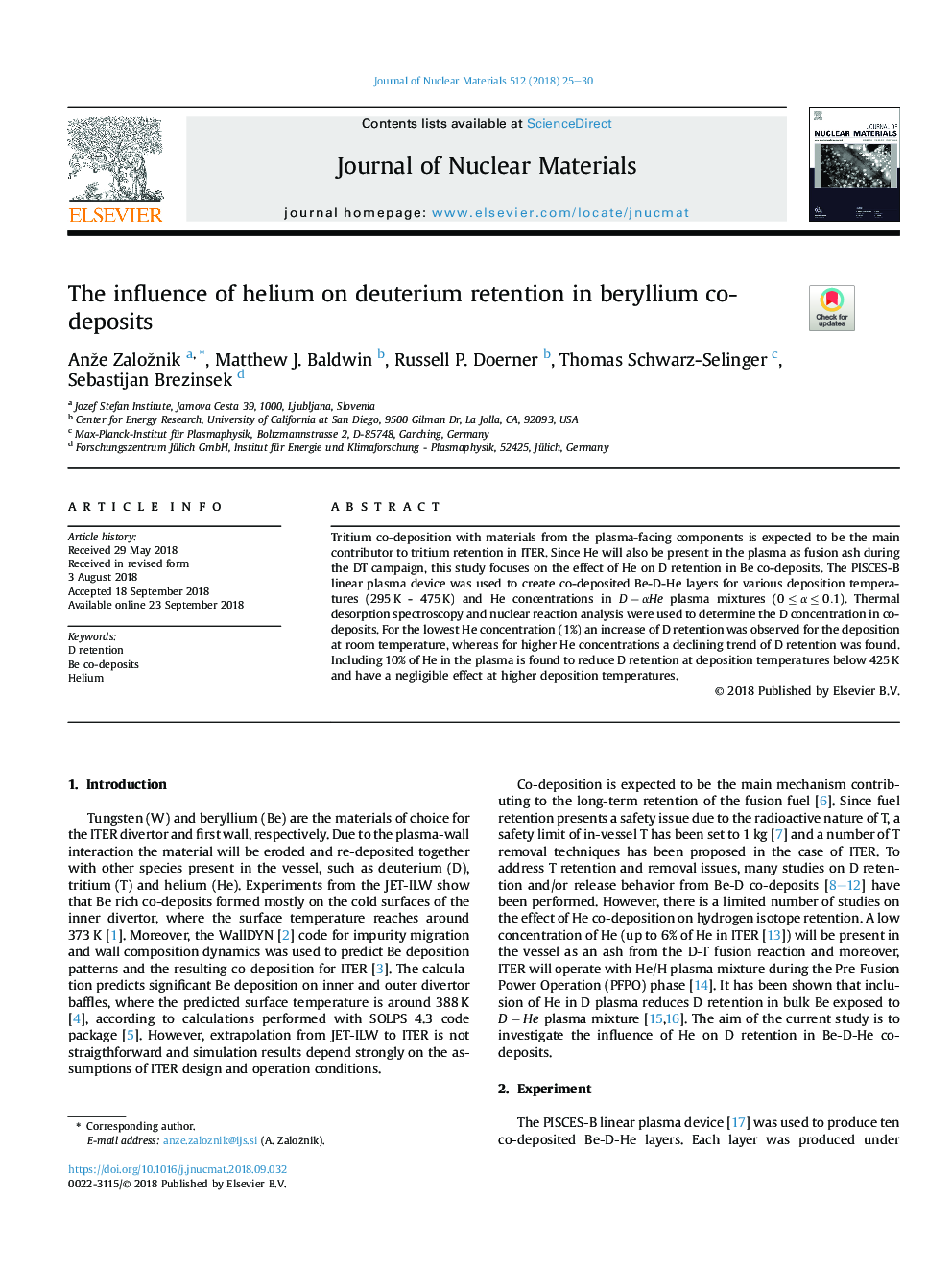| Article ID | Journal | Published Year | Pages | File Type |
|---|---|---|---|---|
| 11001636 | Journal of Nuclear Materials | 2018 | 6 Pages |
Abstract
Tritium co-deposition with materials from the plasma-facing components is expected to be the main contributor to tritium retention in ITER. Since He will also be present in the plasma as fusion ash during the DT campaign, this study focuses on the effect of He on D retention in Be co-deposits. The PISCES-B linear plasma device was used to create co-deposited Be-D-He layers for various deposition temperatures (295â¯K - 475â¯K) and He concentrations in DâαHe plasma mixtures (0â¤Î±â¤0.1). Thermal desorption spectroscopy and nuclear reaction analysis were used to determine the D concentration in co-deposits. For the lowest He concentration (1%) an increase of D retention was observed for the deposition at room temperature, whereas for higher He concentrations a declining trend of D retention was found. Including 10% of He in the plasma is found to reduce D retention at deposition temperatures below 425â¯K and have a negligible effect at higher deposition temperatures.
Keywords
Related Topics
Physical Sciences and Engineering
Energy
Nuclear Energy and Engineering
Authors
Anže Založnik, Matthew J. Baldwin, Russell P. Doerner, Thomas Schwarz-Selinger, Sebastijan Brezinsek,
